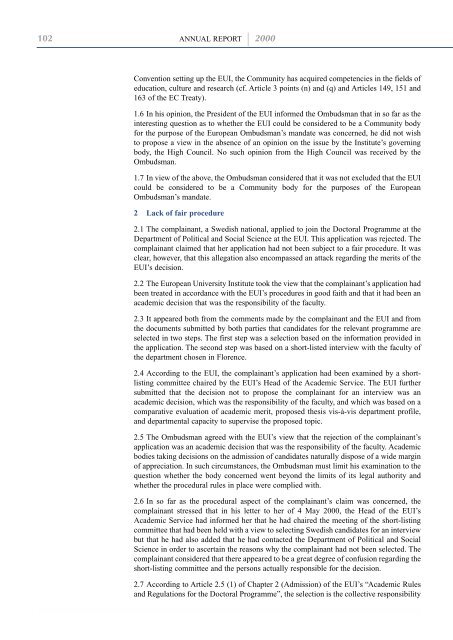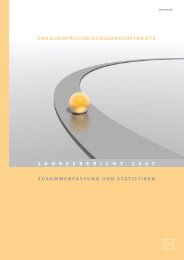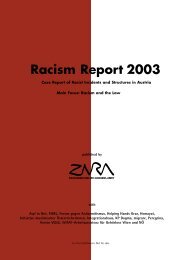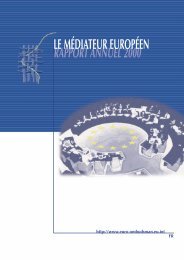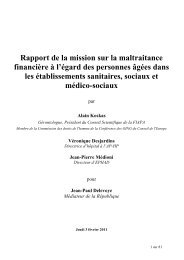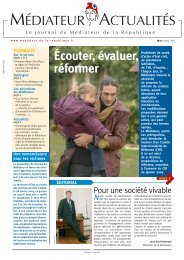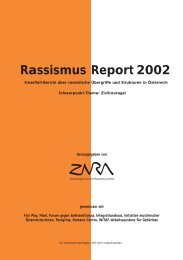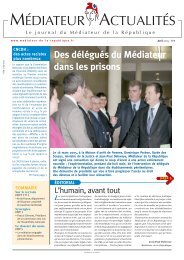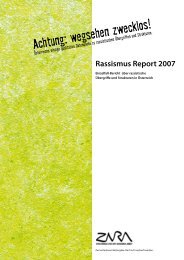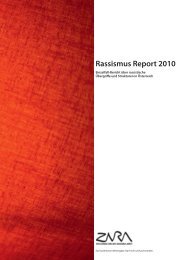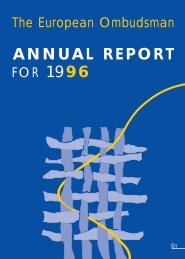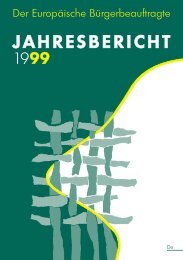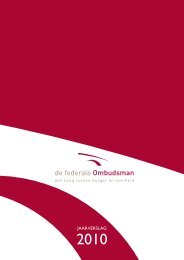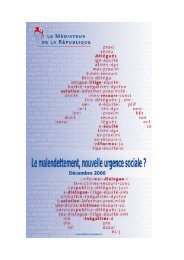Annual report 2000
Annual report 2000
Annual report 2000
You also want an ePaper? Increase the reach of your titles
YUMPU automatically turns print PDFs into web optimized ePapers that Google loves.
102 ANNUAL REPORT | <strong>2000</strong>Convention setting up the EUI, the Community has acquired competencies in the fields ofeducation, culture and research (cf. Article 3 points (n) and (q) and Articles 149, 151 and163 of the EC Treaty).1.6 In his opinion, the President of the EUI informed the Ombudsman that in so far as theinteresting question as to whether the EUI could be considered to be a Community bodyfor the purpose of the European Ombudsman’s mandate was concerned, he did not wishto propose a view in the absence of an opinion on the issue by the Institute’s governingbody, the High Council. No such opinion from the High Council was received by theOmbudsman.1.7 In view of the above, the Ombudsman considered that it was not excluded that the EUIcould be considered to be a Community body for the purposes of the EuropeanOmbudsman’s mandate.2 Lack of fair procedure2.1 The complainant, a Swedish national, applied to join the Doctoral Programme at theDepartment of Political and Social Science at the EUI. This application was rejected. Thecomplainant claimed that her application had not been subject to a fair procedure. It wasclear, however, that this allegation also encompassed an attack regarding the merits of theEUI’s decision.2.2 The European University Institute took the view that the complainant’s application hadbeen treated in accordance with the EUI’s procedures in good faith and that it had been anacademic decision that was the responsibility of the faculty.2.3 It appeared both from the comments made by the complainant and the EUI and fromthe documents submitted by both parties that candidates for the relevant programme areselected in two steps. The first step was a selection based on the information provided inthe application. The second step was based on a short-listed interview with the faculty ofthe department chosen in Florence.2.4 According to the EUI, the complainant’s application had been examined by a shortlistingcommittee chaired by the EUI’s Head of the Academic Service. The EUI furthersubmitted that the decision not to propose the complainant for an interview was anacademic decision, which was the responsibility of the faculty, and which was based on acomparative evaluation of academic merit, proposed thesis vis-à-vis department profile,and departmental capacity to supervise the proposed topic.2.5 The Ombudsman agreed with the EUI’s view that the rejection of the complainant’sapplication was an academic decision that was the responsibility of the faculty. Academicbodies taking decisions on the admission of candidates naturally dispose of a wide marginof appreciation. In such circumstances, the Ombudsman must limit his examination to thequestion whether the body concerned went beyond the limits of its legal authority andwhether the procedural rules in place were complied with.2.6 In so far as the procedural aspect of the complainant’s claim was concerned, thecomplainant stressed that in his letter to her of 4 May <strong>2000</strong>, the Head of the EUI’sAcademic Service had informed her that he had chaired the meeting of the short-listingcommittee that had been held with a view to selecting Swedish candidates for an interviewbut that he had also added that he had contacted the Department of Political and SocialScience in order to ascertain the reasons why the complainant had not been selected. Thecomplainant considered that there appeared to be a great degree of confusion regarding theshort-listing committee and the persons actually responsible for the decision.2.7 According to Article 2.5 (1) of Chapter 2 (Admission) of the EUI’s “Academic Rulesand Regulations for the Doctoral Programme”, the selection is the collective responsibility


